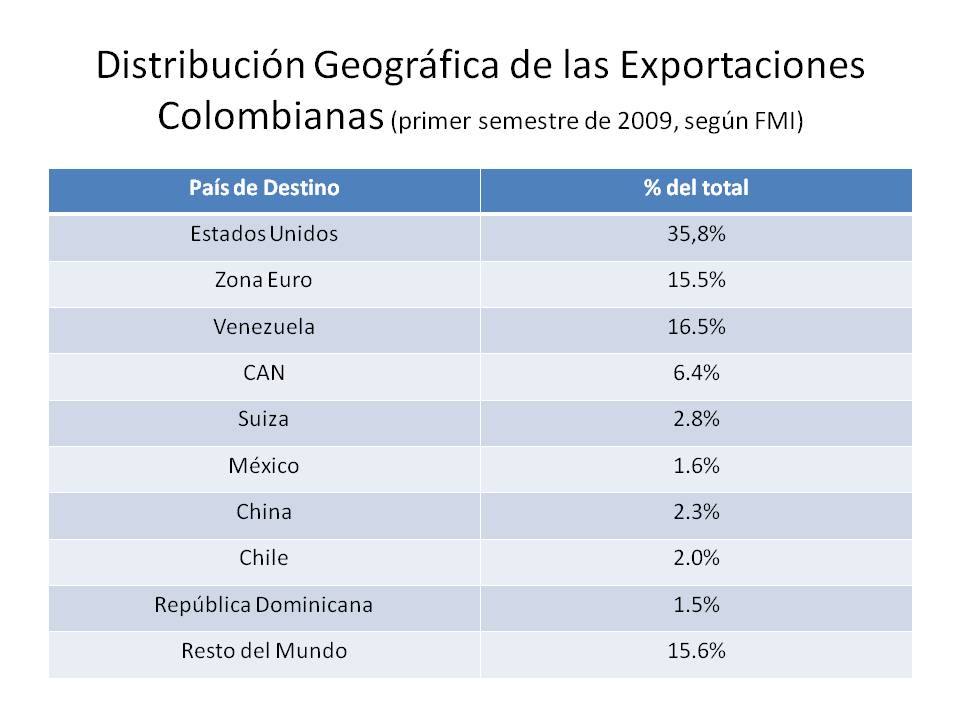Traductor (translator) Andrés Fernando Cardona Ramírez
Ver versión en castellano: http://www.elcolombiano.com/blogs/lacajaregistradora/?p=1099
Colombia and Venezuela are living momentous political processes. The first ventures into a new attempt to cap the legendary conflict between the government and the FARC. Across the border, Venezuelans go to the polls to decide whether to continue with the political project called “XXI century socialism” or give a 180 * turn and allow the opposition to present an alternative to the nearly three decades of Chavez government.
Both the issue of war and peace, and the Venezuelan political climate are vital phenomena for stability, growth and development of the Colombian economy.
The end of the war: a motor for prosperous fields and more sustainable cities.
The first conclusions that have been raised against the armed conflict can be summarized in three points: military spending will not be reduced, peace involves decades of increased public spending to compensate victims but at the same time, contribute between 1% and 3% GDP growth. There will be no cuts to military spending partly because other destabilizing factors survive, like BACRIM and drug trafficking.
While the contribution to GDP (1-3%) can be considered a pretty solid argument to bet on the negotiation, it is necessary to review a little more to realize that the possible effects have to do with not only growth but, specially the socio-economic development. The war has brought many evils and one of them, transcendental due to our demographic structure has been the migration from the countryside to the city. This situation has led to the deterioration of our rural economy and the emergence and development of poverty belts in cities.
The end of the war must stop this wave of migration, raising the potential of the field as an economic sector, improving food supply, encouraging new industries to move into international markets, therefore improving the quality of life in cities, with adequate and financially sustainable urban planning.
The country in recent years has become a magnet for foreign capital, but funds have been especially directed towards the mining industry and to the financial services and telecommunications. The end of the conflict could reduce the level of risk; improve the skills of Colombia, creating a new appeal for foreign capital to finance the production of food, raw materials of plant and animal origin and biofuels. The comparative advantages of good climate, good soil and industrious workforce, could be the seed for creating competitive advantages from a field that is modernized, which and makes way for an export-oriented agribusiness.
Venezuela: (potential) strategic partner.
When it comes to economic matters, for decades, Venezuela has been instrumental in the Colombian economy. The crisis of commercial relationships that we are currently facing has been a blow to the economic development of our country. Although exports to the world have grown, despite the withdrawal of Venezuela from the Andean Community of Nations (AC), qualitatively speaking, the damage has not been compensated.
Why do we say that the damage has not been compensated? Because Venezuela was the largest importer of Colombian manufacturing-products with added value; while the growth of exports to the rest of the world has been mainly of mining commodities. Do not forget that before Venezuela left the AC, the country imported 80% of vehicles exported-equivalent to 20% of imports from Venezuela to Colombia, and 50% of the clothing we exported to World -16% of their total purchases from Colombia.
Venezuela was our second largest trading partner, aside from the U.S., in fact, to the border departments of Santander, Norte de Santander and Arauca, it was critical on many economic fronts and for other regions such as the Aburrá Valley it was an engine for commercial-industrial employment.
Similarly, Venezuela’s withdrawal from AC has weakened the bloc. The largest commercial center of this ambitious integration agreement was the exchange between Colombia and Venezuela, followed by Colombia and Ecuador. Peru has its sights set on global markets for mining products and Bolivia is very much dependent on Mercosur.
Perhaps the AC isnot a great accord of economic integration, although it aims to create a Customs Union. But many nations of the world today consolidated their position in the market through the blocks to which they belong. Keeping isolated weakens the bargaining power in forums such as the WTO. There, for example, an agricultural G-20 was developed to meet the interests of rural America and the European Union, and in that group is not Colombia.
Things with Venezuela, from an economic perspective, are not on the best course. But this neighbor is a strategic partner that we must recover. Independent of the results of the October 7 elections, social and political stability in the neighboring country suits our economy. Retaking the road to good relations is a key strategy for social and economic development of Colombia.
History tells us that in the past the Colombians migrated to Venezuela looking for “El Dorado” due to the lack of opportunities in our land. If In fact, long term migration enriches cultures, in the short and medium run it affects the strength of the development of cities and sometimes brings security problems. A social crisis in Venezuela could lead to a reverse migration wave, for which we are not prepared, as our current growth is not based on labor intensive sectors and the rise of underemployment may offset the demographic balance that could start generating if peace comes the Colombian countryside.

